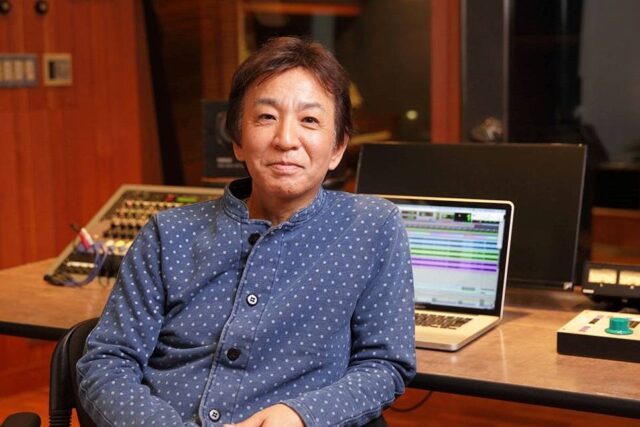Social media has never failed to amaze us! Nowadays, TikTok and now even Instagram Reels can make anyone a star overnight. They have the power to make anything go viral and change someone’s life and career.
Instagram Reels and TikTok have a tremendous effect on the music industry. In December last year, Tik Tok users revived the 80s Japanese city pop song, Mayonaka no Door: Stay With Me. The song got evenly viral on Instagram reels, the Tik Tok for Indians.
Who Is Miki Matsubara?
Matsubara was born in Osaka in 1959. Her mother was a Jazz singer, so music influenced her a lot while growing up. She performed in bands as a teenager, and at the age of 17, she moved to Tokyo on her own.

Matsubara started gaining attention by singing at clubs across Tokyo. When she debuted with Mayonaka no Door, city pop, a genre drawn from Western influences, she became a sensation in Japan. The song peaked at No. 28 on the music chart.
Later, Matsubara released nine original albums and became a composer and songwriter. The song’s popularity increased Matsubara’s stardom, making Mayonaka no Door, a celebrated city pop anthem.
In the 1970s and 80s, Japan was the world’s second-largest economy, threatening to overtake the West. Japanese citizens indulged in this cosmopolitan lifestyle. Sophisticated car stereos, luxury clothing, expensive imported wine, etc. were a part of the Japanese lifestyle.
People wanted a western feel, so they started seeking out this music deeply influenced by American Adult and Album Orientated Rock, and songs that had a jazzy and upbeat vibe.
Also Read: In Pics: Japan Sees Its Earliest Cherry Blossom Season In 1,200 Years Due To Climate Change
How Did Her Song Become So Famous Suddenly?
The song first appeared in anime and Japanese culture TikToks last October, but the official peak of Mayonaka no Door came six weeks later on the app. The song became viral because a Youtuber named Rainych Ran posted her cover of the song on the platform.
TikTok users of Japanese descent then started filming themselves playing the song for their mothers, who would get excited upon recognizing the hit from their youth.
The song gives a beautiful breezy feeling, a catchy chorus, and Matsubara’s vocals over a funky bassline are like the cherry on top. Miki Matsubara was merely 19 years old when she performed this song which made her a star in Japan.
Mayonaka no Door achieved an unforeseen success as it topped Spotify’s Global Viral 50 ranking for three weeks. When users wanted to find the artist, it turned out that Matsubara, unfortunately, passed away in 2004.
Tetsuji Hayashi, the composer of the song who is now 71 years old, tells The Japan Times that this new success “feels very strange … it was so long ago.”
Good music is always appreciated. In response to this newfound interest in Mayonaka no Door, Miki Matsubara’s label, Pony Canyon, released a lyric video on YouTube.

The composer also notes a more emotional element to this new interest in the song. Most of the backing musicians on the track have passed away, “But the music never dies,” says Hayashi. He also says that he is thrilled that people are enjoying the music they all made.
Hayashi says, “I am very happy about the fact that this song made people happy, especially during the COVID-19 era. Maybe that would be the happiest thing for Matsubara, too. That her music is still being heard.”
Conclusion
Music indeed has no language barrier. It is a way to heal one’s heart and soul in a most significant manner. It certainly has no boundaries and is like wings that spread beautifully. It is a medium that connects people from different regions.
People have started to appreciate music irrespective of the language barrier the particular song has been released. Instead, they have begun to accommodate more such tracks in their playlists.
Many of which are composed in languages foreign to them. It is truly amazing to see good music getting appreciated all around the world.
Except for a little bit of cringe content, these platforms are a great place where people can communicate and learn about different cultures and share their opinions.
Since music has become easily accessible to all, we keep getting introduced to such great music and artists even after decades.
Image Credits: Google Images, ARC
Sources: The Japan Times, ARC, Pitchfork, Japanoscope
Find The Blogger: @PrernaMagan
This Post Is Tagged Under: Miki Matsubara, lyrics, 真夜中 の ドア stay with me, Miki Matsubara composer, lyrics of stay with me, city pop, what is city pop, Pop music, Tatsuro Yamashita, Japanese singer-songwriter, Mariya Takeuchi, Musician, 80s, 70s, 80s music, rock music, Toshiki Kadomatsu, Compact disc, CDs, Plastic love, Plastic love by Mariya Takeuchi, Chord, city, City pop aesthetic, lo-fi beats, Japan, anime, Japanese anime industry, Japanese language, Japanese people, 1980s, Music, Albums, Songs, Vaporwave, Musical style, classical music, Anime openings, best anime openings, Funk, Jazz, Indian music, Bollywood, Japanese music, Mayonaka no Door song































